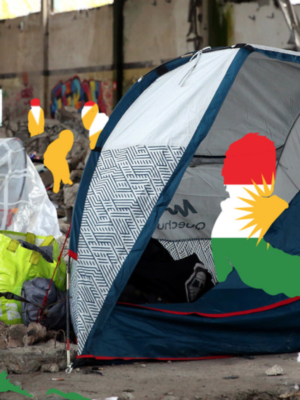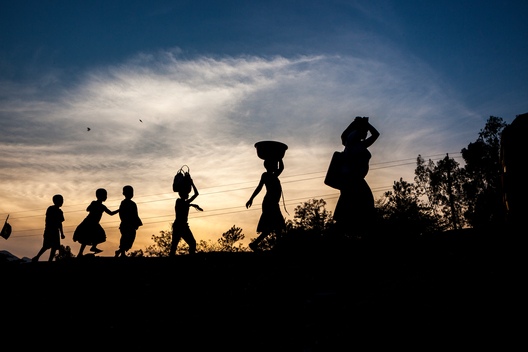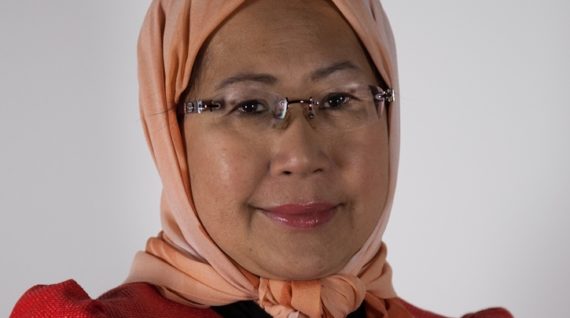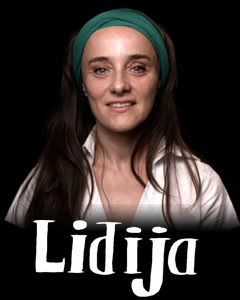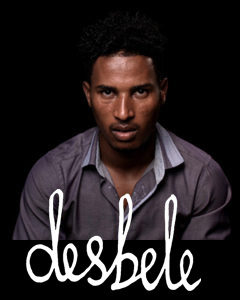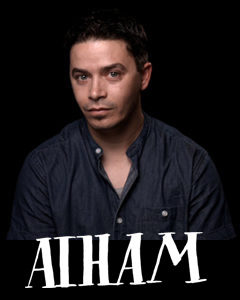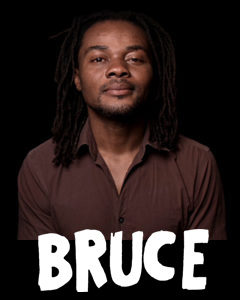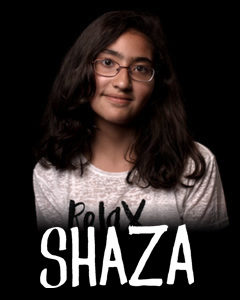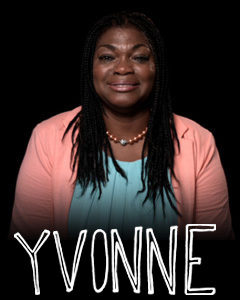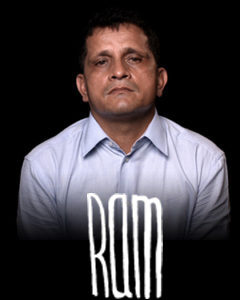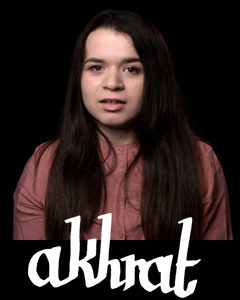Ram Karki (1970), Bhutan
Ram grows up as a Hindu in Bhutan, a small kingdom in the Himalayas. He lives a peaceful life in the countryside with his parents and seven brothers and sisters, until the king decides that the Buddhist and Hindu Bhutanese people are not equal citizens. From one day to the next, the king enacts discriminatory laws.
After secondary school Ram trains to become a teacher. Resistance to the new laws introduced by the king starts in that period. Ram also joins in and donates money for a pamphlet that highlights the oppression of Hindus in Bhutan. One of the writers is arrested and tortured until he reveals the name of, among others, Ram. Ram flees to India without even saying goodbye.
From India, Ram helps to organize a peaceful protest in the south of Bhutan. The demonstration is brutally suppressed and many people flee to India. Finding little help there, Ram leaves for Nepal, where he and others set up a refugee camp. What begins as an improvised encampment in a few cowsheds by a river grows into a camp that is home to 100,000 refugees. In the end, the UNHCR, the United Nations body for refugees, assumes control of the camp.
The UNHCR gives Ram a grant to study in India. He then returns to the camp in Nepal and fights for the rights of Bhutanese refugees. He ends up living there for over ten years. Since Nepal refuses to accept the refugees, his situation becomes increasingly hopeless, and in 2003 Ram flees to the Netherlands. Here he continues to highlight the plight of Bhutanese refugees.
Situation in Bhutan
The Bhutanese population is made up of various ethnic groups. Some of them originally come from Nepal and live in the south of Bhutan. Other groups come from Tibet, or have been settled in Bhutan for centuries. The Nepalese portion of the population is predominantly Hindu, while the majority of the Bhutanese population is Buddhist. Tensions sometime result.
In the 1980s, King Jigme Singye Wangchuck introduced laws that oppress the Nepalese Hindus. For instance, they were not allowed to wear their traditional clothing or speak the Nepalese language. Another law determined that only those groups who have been settled in Bhutan for hundreds of years were entitled to citizenship. Since the Nepalese Bhutanese came to Bhutan much later, according to the king, many of them became illegal inhabitants in one fell swoop.
The oppressed Hindus rebelled against this situation. Public demonstrations were organized by the Bhutan People’s Party. The king adopted harsh measures, accusing those who took part of being ‘anti-nationalist’. Thousands of people were imprisoned and tortured, and many fled the country.
Thanks to the efforts of activists like Ram in calling attention to the situation in Bhutan, international pressure was put on the king. Starting in the late 1990s, he relaxed some laws. He allowed some access to television and internet, and a number of political prisoners were released. In 2006 the king abdicated and was succeeded by his son, who continued with reforms. Since the elections of 24 March 2008, Bhutan is officially a parliamentary democracy. Nonetheless, the king still exerts great influence: the two largest parties are staunch supporters of the monarchy.
Emergency relief and resettlement
Emergency relief is the very first help that people receive after a natural disaster or armed conflict. It usually covers shelter, medical care, food, potable water, sanitation, education and protection. Relief organizations such as the Red Cross and Red Crescent movements are the first on the scene during a disaster or conflict. They provide emergency relief to all victims, irrespective of their background or involvement in the conflict. The UN refugee organization, the UNHCR, is responsible for organizing refugee camps and helping refugees in urban areas.
Although refugee camps are intended as temporary accommodation, the reality is that many of them develop into permanent settlements that are often home to hundreds of thousands of people. Despite the support of aid organizations, conditions in camps are often poor. They are overcrowded and unsafe, and because of the lack of opportunities to study or work, inhabitants have little hope of a bright future. Some people have lived in refugee camps for over twenty years.
The most vulnerable refugees are eligible for resettlement. Such people can be selected to start a new life in a western country. The UNHCR nominates refugees and the International Organization for Migration (IOM) arranges their resettlement in so-called ‘third countries’, including Australia, Canada, the United States, Sweden and the Netherlands.
The process to resettle Bhutanese refugees from Nepal started in 2007. America has taken in by far the greatest number: almost 85,000. Thanks to the help of Ram, the Netherlands is now home to 327 refugees from Bhutan. In 2015 almost 18,000 refugees lived in the two big refugee camps in Nepal. Many of them, including a sister of Ram, do not want to leave because they hope to be able to return one day to Bhutan.

